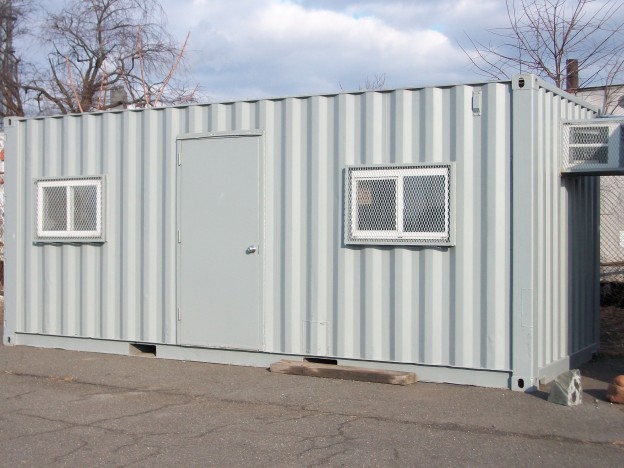The efforts to mitigate the spread of COVID-19 are nationwide, and trying to deal with the lack of space available to screen patients, store supplies, and adequately quarantine those who test positive is posing unique challenges for hospitals, companies, and governments alike. After all, not just any tent or tarp can be a makeshift waiting room or testing facility. The COVID-19 response effort is dependent on the use of reliable, affordable, and secure mobile building solutions to both contain the spread and support the first responders working to treat those affected.
Portable metal shipping containers, like those supplied by LGI Transport, are ideal for use by medical staff at the forefront of the response efforts. They are versatile, affordable, and relatively quick and easy to deploy. Here are some of the specific ways professionals on the front lines of the coronavirus battle can use mobile shipping containers and how they’re helping to keep people safe:
Mobile Testing Facilities
As we continue to fight COVID-19, a concerted effort remains around trying to get as many people tested as possible to improve our understanding of the problem’s overall scope. But while it is essential, there are numerous liabilities associated with testing people en masse that can make it seem highly risky. While arranging and conducting these tests, healthcare professionals must be careful to avoid further exposing anyone to the virus.
For officials or administrators looking to set up a mobile testing facility, 20-foot shipping containers are a more secure alternative to having patients wait in a series of tents. They are easier to sanitize than tents and can help avoid the unnecessary spread of the virus as a result of testing. More secure, efficient testing will help us understand just how severe the problem is and get the whole country on the fast track toward reopening.
Patient Care Units
When treating patients who have tested positive for COVID-19, special considerations must be made. Many hospital administrators are being forced to reorganize patients to keep those who are infected away from everyone else. Having separate containment units dedicated to the housing and monitoring of infected patients allows them to fully focus on coordinating the relief effort. Different size units are also available to help meet desired capacities.
Mobile Sanitation Stations
For hospitals and other community organizations, a significant part of the fight against COVID-19 is keeping everyone sanitized. If people are working with suspected infected individuals, they need access to an isolated, sterile washing area to disinfect themselves between patients or at the end of the day. Having frontline healthcare workers utilizing the same facilities as the general public can increase the virus’s risk of spreading. Using cargo containers as mobile washrooms help to isolate the potential area where the virus can spread while simultaneously giving healthcare workers more leeway to protect themselves.
Using Storage Containers as Emergency Management Offices
Shipping containers have a variety of uses, including safe transport of cargo, temporary storage, and innovative artistic uses. Emergency response agencies have found a use for them, as well, converting used shipping containers into mobile offices they can transport to the scene of disasters.
When a disaster strikes, office space for emergency responders may be nearly impossible to find, because buildings in the area may be destroyed. However, this space is essential for giving responders a workspace. Used shipping containers make ideal temporary office space for disaster responders to work out of for the following reasons:
- They’re easily transportable. A semi-truck hauling in goods can just as easily haul in a 20- or 40-foot shipping container to a disaster scene.
- They’re sturdy. Made of corrugated steel, shipping containers can withstand the elements. In areas with rugged conditions, or high winds or rain, they make excellent temporary offices.
- They’re expendable. Used shipping containers are relatively inexpensive, making them easily replaceable should they be damaged.
- They’re adaptable. Shipping containers are easily convertible for a variety of purposes, including providing shelter and temporary storage. They can also be easily connected to other containers to create a larger structure.
Used shipping containers are easy to obtain. Many shipyards have a significant supply of shipping containers they would like to be rid of.
However, mobile storage facilities can help healthcare providers test for and treat the virus while flattening the curve. To learn about how our cargo shipping containers for sale can help officials during outbreaks, reach out to LGI Transport today!

